With experts across the WILDLABS community working with every type of technology and in every imaginable environment, our platform is a great place to find advice and resources on choosing what tools are right for your conservation project. Whether you're in the market to try a new camera trap model, want to experiment with drones for the first time, or need help weighing the pros and cons of data management tools, there's someone in the WILDLABS community who can help you make a smart and informed choice!
The Community Base is our general gathering group. It's the place where we cover more general, big picture topics in conservation technology - ones that don't fit neatly into our other groups. If you don't know where to post something, just post it in this group. Our moderators will move it if needed!
At our Community Base, you'll find updates from the WILDLABS team on upcoming events and opportunities, and have the chance to shape our programs and platform with your opinions. And most importantly, the Community Base is also home to our Welcome to WILDLABS thread, the best place to introduce yourself to us and the community. Stop by and tell us what you're working on!
Whether you're new to WILDLABS and want to know where to begin, or you're a longtime member looking for a handy bank of resources, our Getting Started on WILDLABS thread will be your one-stop guide to getting the most out of our platform.
Want to find out more about WILDLABS? Check out our recent community call:
Header image: Ana Verahrami/Elephant Listening Project
Group curators
- @TaliaSpeaker
- | She/her
WILDLABS & World Wide Fund for Nature/ World Wildlife Fund (WWF)
I'm the Executive Manager of WILDLABS at WWF

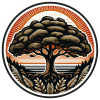

- 23 Resources
- 64 Discussions
- 31 Groups
- @alexrood
- | she/her
WILDLABS & World Wide Fund for Nature/ World Wildlife Fund (WWF)
I'm the WILDLABS Communications and Community Management Associate Specialist at WWF-US

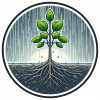



- 149 Resources
- 95 Discussions
- 6 Groups
No showcases have been added to this group yet.
- @Stelios
- | he/him
I am a Software Developer living in Berlin, Germany. Previously studied Informatics (BSc) and Data Science (MSc) in Athens, Greece.
- 0 Resources
- 0 Discussions
- 12 Groups
- @peterdesmet
- | he/him
Biodiversity informatician at INBO. Passionate about open data and open science. I develop research software, maintain data standards and publish datasets, mostly for animal movement research.
- 0 Resources
- 1 Discussions
- 5 Groups
- @antoniouzal
- | He, him
Associate Professor of Conservation Biology @ Nottingham Trent University (UK), involved in projects using GPS tracking, ecoacoustics, camera trapping and other awesome technology
- 0 Resources
- 0 Discussions
- 4 Groups
- @jguenter
- | he/him/his
Species360 CEO - passionate about using data to care for and conserve species
- 0 Resources
- 0 Discussions
- 5 Groups
Ms. Sarah Mshanga is a research assistant-trainee at the Women in Conservation Organization since August 2023. She holds BSc. in Wildlife Management from Sokoine University of Agriculture. She also interned at Lion Landscapes and GMERC Project.
- 21 Resources
- 52 Discussions
- 12 Groups
- @diego_ellis_soto
- | he/him
University of California & California Academy of Sciences
Biodiversity |Technology | Socio-Ecological Systems | Wildlife Ecology | Remote Sensing | Conservation | K12STEM-education | Music | diegoellissoto.org
- 0 Resources
- 0 Discussions
- 20 Groups
- @Alawa
- | She/Her
Passionate wildlife and biodiversity conservationist
- 0 Resources
- 0 Discussions
- 24 Groups
- @Tim_Hofmeester
- | he/him
Swedish University of Agricultural Sciences
Researcher studying human-wildlife coexistence -- Camera trapper
- 4 Resources
- 1 Discussions
- 5 Groups
- @KathHecht
- | she/her
I am a biologist/ecologist without concrete specialisation. New Zealand's unique but fragile flora & fauna have taught me the importance of increasing awareness with locals and visitors alike. This is my constant motivator.
- 0 Resources
- 0 Discussions
- 10 Groups
- @kricherds
- | she/her
Technologist. Civic Science Fellow & Data Inclusion Specialist at OEDP.

- 0 Resources
- 0 Discussions
- 14 Groups
British-Costa Rican | Interested in transdisciplinary research in Planetary Health amongst other things

- 0 Resources
- 1 Discussions
- 13 Groups
- @WilliamGawo
- | Mr
I am a tech enthusiast, with a keen interest in wildlife conservation. I am licensed drone operator, with a night operations rating, a drone instructor, with a night operations instruction rating and currently working as Head of Training at Expert Drones Africa.
- 0 Resources
- 1 Discussions
- 1 Groups
We are a team of ecologists and technologists who believe good business must be good for nature. We’re building an economy that puts nature and business in balance by incentivising the restoration of nature at scale.
7 July 2023
Applications are now open till 23 July for the 2023 Canon Oceania Grants with the category of the Environmental Grant valued at AU$5,000. The finalist will be selected based on the environmental and social merits of...
7 July 2023
Join our annual #Tech4Wildlife Photo Challenge from July 24-28 to share your best photos and videos with conservation tech users, makers, and supporters from around the world.
7 July 2023
In this article from Fran Baker, Fiona Riggall, and Ed Miller, you'll learn how tech companies like Arm can incorporate sustainability into their mindset for longterm success.
5 July 2023
Article
Say hello to the WILDLABS community on Instagram and help us highlight conservation tech work happening around the world!
1 July 2023
CBE is recruiting a full-time Senior Wind Engineering Manager to drive the development and implementation of their existing and future wind portfolio.
27 June 2023
The GSMA ClimateTech programme
21 June 2023
In this article from Jacinta Plucinski & Akiba of Freaklabs, they share advice on organising your thoughts around building short-term and long-term sustainability considerations into your conservation technology...
21 June 2023
Careers
Come work with us! WILDLABS and Fauna & Flora are seeking a Project Manager to join our team and help deliver projects under our cross-sector funding and events programmes. Accepting applications until Sunday, 9...
16 June 2023
Come work with us! WILDLABS and Fauna & Flora are seeking an intern to help develop the movement ecology content on the Inventory - our wiki-inspired database of conservation technology. Accepting applications until...
6 June 2023
Inger Andersen, the Executive Director of the UN Environment Programme (UNEP) explains how the innovative approaches towards curbing plastic pollution witnessed across African nations can help in pivoting to a plastics-...
5 June 2023
It's World Environment Day! This year the focus is on solutions to plastic pollution under the campaign #BeatPlasticPollution. How are you getting involved to solve plastic pollution using conservation technology?
5 June 2023
October 2025
event
event
event
November 2025
February 2026
April 2026
event
November 2023
event
| Description | Activity | Replies | Groups | Updated |
|---|---|---|---|---|
| Hi everyone,So excited to be here. Based in Vienna Austria and working as a Founder for Stop The Desert, assisting farmers who need training and funds to transition to... |
+441
|
Community Base | 15 hours 13 minutes ago | |
| This is wonderful, thanks for sharing! |
|
Community Base, Early Career, Human-Wildlife Coexistence, Women in Conservation Tech Programme (WiCT) | 11 hours 15 minutes ago | |
| Thanks Frank. |
|
Funding and Finance, Community Base | 15 hours 29 minutes ago | |
| Hello HenryCan someone submit more than one application with different ideas? |
+19
|
Funding and Finance, Community Base | 2 days 3 hours ago | |
| How to submit a proposal for the Boring Fund on the Platform ? |
+26
|
Community Base, Funding and Finance | 2 days 8 hours ago | |
| Interesting way to get community members contributing to the platform, to learn and share knowledge on GIS-Based conservation |
|
Community Base | 6 days 1 hour ago | |
| Would love to collaborate on this we are curently building agents for conservation Kind regardsOlivier |
|
AI for Conservation, Community Base | 1 week 6 days ago | |
| ...one of @jared ;) ...I think there are a few biz dev users from other legacy manuf., but yeah, they are not active. |
+21
|
Community Base | 2 weeks 1 day ago | |
| Hello Youssef,Yes, let's keep contact. I'm currently looking for good conferences to publish my work, if you are aware of something, please let me know. |
+53
|
AI for Conservation, Community Base | 3 weeks 6 days ago | |
| I thought you might find this model of connecting tech start-ups and developers to end users through Innovation Groups interesting and... |
|
Community Base | 1 month 2 weeks ago | |
| Support the Cartographer Cause! Hi there,I am on a mission to empower children and communities through maps, GIS — helping people better... |
|
Climate Change, Community Base, Conservation Tech Training and Education, East Africa Community, Geospatial | 1 month 2 weeks ago | |
| Thank you for your reply, ChadI meant 10 as a whole, indeed. Perhaps you see your post in one group, but since it is tagged for all groups, I assumed you meant 10 in total.In your... |
|
Acoustics, AI for Conservation, Animal Movement, Camera Traps, Citizen Science, Climate Change, Community Base, Connectivity, Drones, eDNA & Genomics, Emerging Tech, Funding and Finance, Geospatial, Human-Wildlife Coexistence, Software Development, Wildlife Crime | 1 month 3 weeks ago |
In The News....
22 June 2021 1:05am
WILDLABS Journal Club: edna vs camera traps, Wombot, Drones & killer whales
18 June 2021 4:37pm
18 June 2021 4:38pm
Read more:
-
eDNA sampled from stream networks correlates with camera trap detection rates of terrestrial mammals (2020) https://doi.org/10.1038/s41598-021-90598-5
-
Other related resources:
-
eBioAtlas: partnership between NatureMetrics and IUCN to rapidly create a global atlas of the world's freshwater biodiversity using eDNA https://ebioatlas.org/
-
WILDLABS eDNA virtual meetup talks: https://www.youtube.com/playlist?list=PLWcz3iwCnCqSyyZh7Wc3pbvtmJ-4CJcLt
-
Industry guidelines: https://www.naturemetrics.co.uk/2021/05/11/industry-brief-edna-to-manage-biodiversity-risk/
-
-
WomBot: an exploratory robot for monitoring wombat burrows: https://link.springer.com/article/10.1007/s42452-021-04595-4 -
SNAPSHOT USA 2019: a coordinated national camera trap survey of the United States : https://doi.org/10.1002/ecy.3353 -
Studying Killer Whale Behaviour with Drones
WILDLABS Looking For Personal Stories of Challenges/Lessons Learned
21 April 2021 3:42pm
4 June 2021 4:44pm
Hi Ellie--
I brought this up in today's Journal Club, but I'm happy to talk about some of my experiences dealing with a whole bunch of different things that have damaged or destroyed microphones in acoustic sensors (weather, curious animals, etc), and what we've tried to do in order to minimize or account for those failures.
4 June 2021 5:21pm
Hey David,
Awesome, that sounds perfect! I'll email you some of the guidelines and a basic outline to get started with next week! Thanks again, excited to have you onboard!
WILDLABS Journal Club: Planetary AI, biologging data standards, slope & Acoustics, & AIDE system
4 June 2021 5:04pm
4 June 2021 5:06pm
Read more:
-
The G.AI.A series: Artificial Intelligence and Planetary-Scale Environmental Management, @davethau: https://medium.com/g-ai-a
-
Dave Thau’s talk at the WILDLABS Virtual Meetup about Big Data in Conservation: https://www.youtube.com/watch?v=ixhGqPGxtb8&list=PLWcz3iwCnCqTOdY5AGWdxcv9gczUpmvmG&index=31&t=1s
-
Annotation Interface for Data-driven Ecology (AIDE) version, Benjamin Kellenberger -https://github.com/microsoft/aerial_wildlife_detection, Paper: https://doi.org/10.1111/2041-210X.13489
-
A standardisation framework for bio-logging data to advance ecological research and conservation, Sequeira et al: https://besjournals.onlinelibrary.wiley.com/doi/10.1111/2041-210X.13593
-
Slope does not affect autonomous recorder detection shape: considerations for acoustic monitoring in forested landscapes, Shaw, Muller, and Scherer-Lorenzen, University of Freiburg: https://www.tandfonline.com/action/journalInformation?journalCode=tbio20
@carlybatist 's in Case You Missed It
- Platform to green supply chains – chocolate maker Barry Callebaut funds EcoVision’s new sat-imagery carbon map based on to help companies avoid deforestation in their supply chains (https://news.mongabay.com/2021/06/chocolate-giant-funds-high-resolution-carbon-map-to-protect-forests/)
- Business Alliance to Scale Climate Solutions – SalesForce, Microsoft, Google, Amazon, Netflix, Disney, UNEP, EDF, WWF (https://thehill.com/policy/energy-environment/556706-tech-entertainment-giants-joining-environmental-groups-un-to-reduce)
- Trase platform – data-driven transparency initiative; supply chain mapping, commodity & trade sustainability assessments, accountability for environmental impacts (https://www.trase.earth/)
- Conservation optimism! – 2 islands in the Galapagos declared invasive-rat-free thanks to grid of drone-deployed bait traps (https://www.islandconservation.org/invasive-rodents-no-longer-threaten-wildlife-seymour-norte-island-mosquera-islet/)
- Digital Service for the Planet – 30+ conservation org’s join Environmental Policy Innovation Center to call for federal program aggregating resources currently spread out among different and pursue other AI & tech solutions (https://www.linkedin.com/pulse/creating-digital-service-planet-timothy-male/)
- SafetyNet Technologies – offering free advisory sessions to anyone in fishing industry (https://docs.google.com/forms/d/e/1FAIpQLSdzAHai4OaEEIIU7le0eiNVISD4dAJbJrF4rb1JBjA6ikdNlg/viewform)
- PalmOil.io – for businesses to identify deforestation in their supply chain and track environmental risks from suppliers (https://palmoil.io/)
COVID-19 & Conservation Tech Survey - Input Needed!
3 May 2021 6:55pm
5 May 2021 8:41pm
COVID-19 & Conservation Tech: The Story So Far
5 May 2021 12:00am
Survey: COVID-19 and Conservation Tech
23 April 2021 12:00am
Good Tech Fest | deep ticket discounts
5 April 2021 6:52pm
Funding Opportunity: Grad Student Research Fellowship Awards
1 April 2021 12:00am
Funding opportunities on Experiment
9 March 2021 9:11pm
Join the sixth annual #Tech4Wildlife Photo Challenge!
24 February 2021 9:03pm
1 March 2021 12:04pm
Hi everyone!
Just dropping in to say we've seen more than 150 photos shared in this year's #tech4wildlife photo challenge already! We often hear it's really hard to get an idea of what the conservation tech landscape is like - who is doing what. This photo challenge is one of the ways we try to break down those information barriers and bring everyone together. If you're curious about what's being shared this year, you can check out our curated feed on twitter here:
https://twitter.com/WILDLABSNET/timelines/703260604908314625
We'd love to have your projects added into our big #tech4wildlife celebration. If you haven't already, take a photo and tell us a bit about what you're working on! Share it on Twitter with the hashtag #tech4wildlife and tag us @WILDLABSNET. As always, we'll count down our favourites on March 3, World Wildlife Day.
Steph
Interview opportunity about your experience in researching
18 February 2021 6:46pm
26 February 2021 4:23pm
@StephODonnell perhaps tweeting this out from the Wildlabs account to increase coverage?
Froilán and Edgardo - what do you mean by 'experienced'? That can mean different things to different people so just wanted to clarify the term. Thanks!
Seeking part-time (33%) lecturer candidates at UC Berkeley
24 February 2021 10:38pm
Join the sixth annual #Tech4Wildlife Photo Challenge!
24 February 2021 12:00am
WildTrack Women in Science Day, 11 February 2021
11 February 2021 1:48pm
Documentary Series : scientific and technologic innovations to protect endangered animal species around the world
3 February 2021 5:11pm
Recruiting interview participants re. conservation+communities+tech
13 January 2021 7:06am
17 January 2021 1:12am
Someone also just sent me this super relevant FAO report on ICT's / phones / technology use in small scale fisheries: http://www.fao.org/documents/card/en/c/cb2030en
19 January 2021 8:57pm
Hi again! We just tweeted it out: https://twitter.com/uwchange/status/1351582312677347328
We're recruiting interview participants to study how environmental institutions use technology in interactions with their local communities. Please pass this on if you know someone who might like to participate!
— Change (@uwchange) January 19, 2021
More info: https://t.co/D9vLTQk2zi
19 January 2021 9:02pm
Awesome! I'll spread the word!
What have you been working on recently (2020)?
6 November 2020 4:46pm
18 January 2021 9:09am
Hi Ryan,
I can´t wait to see your cameratrap - drone setup work!
So much potential! Please keep us updated.
Greetings from Austria,
Robin
18 January 2021 3:09pm
Hi Robin!
Lots of updates coming soon. Hoping to do a test flight on one of the drones today if the rain holds off and I'll be sure to post some photos.
19 January 2021 8:58am
Hi Ryan,
this sounds great!
Tech Tutors: How do I build a community-owned conservation tech research project?
6 January 2021 4:57pm
Enter the Global Innovation Award competition!
17 December 2020 10:51pm
The Earthshot Prize
8 December 2020 12:00am
Weekly #Tech4Wildlife highlights from Twitter
7 October 2020 8:27pm
20 November 2020 11:13pm
Hi Wildlabbers,
It's already time for more weekly tweet highlights!
First, we were excited to see Season 1 Tech Tutor's Sara Beery getting tweeted about the MegaDetector in action!
Yay #MegaDetector!! Vertically aligned animals was one of the things we targeted with the v4 release, great to see that it helped https://t.co/4kW9blGQZ8
— Sara Beery (@sarameghanbeery) November 19, 2020
Next, we loved seeing another Season 1 Tech Tutor, Daniel Situnayake repping his episode in this tweet about some very fun backyard birdwatching AI!
The @BirdBuddy_ is a super cute AI bird feeder that recognizes birds by their image or their song. It would be even cooler if inference happened on-device!
— Daniel Situnayake #BlackLivesMatter (@dansitu) November 19, 2020
p.s. to train your own birdsong recognizer, see my @WILDLABSNET tutorial:https://t.co/3gl2MJNm1Nhttps://t.co/oTaC3BxOZe
Community member Shah Selbe shared an article about this unique sensor deployment strategy involving drones and darts - what do you guys think of using this system in the field??
Sensor-equipped darts shot from drones is definitely not a conservation technology deployment approach I’ve thought of before. https://t.co/i4C4h7oLxD
— Shah Selbe (@shahselbe) November 17, 2020
And lastly, we can't NOT mention that we celebrated WILDLABS' fifth anniversary this week!
Tweet us or post with your favorite community memories from the past five years!Happy anniversary to WILDLABS! For five years, we've seen incredible collaborations and successes come out of this community, and we can't wait to see what we can build and accomplish together in #tech4wildlife in the next five years! We're just getting started.
— WILDLABS Community (@WILDLABSNET) November 18, 2020
-Ellie
4 December 2020 1:40pm
I thought this one was seriously cool this week:
My MarkII directional #bioacoustics recorder works! Here’s a #bat fly-past recorded in the garden. Spectrogram and sky map shown. It flew in from the east and took a right. Radio astronomy has its uses. @NewsonStuart @Ottercivet @WILDLABSNET #tech4wildlife #SciTech @CBurkeSci pic.twitter.com/nyV8te9LB4
— Jim Lovell (@jlovell) December 4, 2020
4 December 2020 10:18pm
Happy Friday, Wildlabbers!
This was a big week for #tech4wildlife announcements and resources on Twitter - here are just a few of our favorites:
Audiomoth got even easier to use - great news for our Bioacoustics community!ZSL gave us a glimpse of their Instant Detect 2 satellite camera and sensor system:1. We are excited to release the new #AudioMoth 1.5.0 firmware, which saves your configurations even when batteries are removed. Enabling fieldwork-friendly time configuration, using an acoustic chime to set the AudioMoth clock from a smartphone app https://t.co/G7zBKaghFt pic.twitter.com/M8o858UfUg
— OpenAcousticDevices (@OpenAcoustics) November 23, 2020
Our friend Alasdair Davies shared his work creating sustainably made, recycled satellite tags:#InstantDetect2 is starting to look really good. Next year should be very exciting!#Tech4wildlife https://t.co/ZfmlNVivvF
— SamSeccombe (@SamSeccombe) November 24, 2020
The Snow Leopard Trust team shared this great resource on the ethics of camera trapping when it comes to capturing human images:A highlight of my career this one. I didn't ever think I'd get to join a National Geographic expedition @InsideNatGeo turning 500ml water bottles into satellite tags with @HeatherKoldewey @EmilyDuncan34 @Imogennapper and others https://t.co/iPCAwBOBAV
— Alasdair Davies (@Al2kA) December 3, 2020
And lastly, if you follow our annual #tech4wildlife Photo Challenge, you'll know that we're big fans of whale photos. So obviously we loved this post from Emma Vogel!You set up #cameratraps to detect #snowleopards, but cameras detect this. What will you do?
— Koustubh Sharma (@koustubh_sharma) November 25, 2020
1. Report it?
2. Delete it?
3. Blur and share it?
4. Archive it?
Read on as we discuss the ethical tight-rope of dealing with human images in @AER_ESE_BES: https://t.co/H9MfIyccgp pic.twitter.com/O37bOBA6mh
And that's a wrap on our two week research cruise! We successfully deployed both satellite and archival #Biologging tags, as well as collecting lot of #biopsy, #photoID, #eDNA and #acoustic data. It's great to be part of such exciting collaborative research on #whales in Norway! pic.twitter.com/ZcEbXVlz7H
— Emma Vogel (@efvogel) November 30, 2020
Fixing Up Important Scientific Field Site in Panama
27 November 2020 4:32pm
$10k Challenge Grant for Conservation Tech Projects
26 November 2020 12:00am
Students looking to speak with local stakeholders
20 November 2020 5:22am
22 November 2020 5:24pm
Hi,
I have some Malagasy contacts if those might be of interest to the students. I conduct fieldwork on lemurs in a national park there in collaboration with Centre ValBio research station, but I know of others working in Malagasy non-profits as well who may be good candidates. Feel free to email me (cbatist@gradcenter.cuny.edu) and I'm happy to facilitate any connections I can.
All the best,
Carly
Seeking reviewers for early-career funding applications
6 November 2020 2:37pm
Tech Tutors 2: What do you want to see?
22 October 2020 4:08pm
22 October 2020 7:22pm
Hi There,
Nice you opened up the agenda.
I want to see more things on how to build devices, from cases to connectivity. I would like to see something in particular (a hands-on with real things and applications): Satellite connectivity.
Something was mentioned on the wildlife drones episode, I would like to see more on that, from ready to use devices to boards to build your own devices, detailed things, including estimated costs for the services, coverage and the like, an easy to roadmap to implement those things would be nice.
Of course, I want to see more on drones, that would be interestering too, there is a lot of action by applying drones for wildlife care. I am paricularly interested in autonomous ones, I don't know if there is any advance on them.
Some specialists on image sensors would be also appreciated (infrared, non-military SWIR, LWIR, etc)
Landbased Sensors + Connectivity + Drones + LWIR = Early wildfire detection, that is something that affects Jaguars and all kind of wildlife!
Best Regards,
Carlos.
26 October 2020 2:16pm
LoRa/LoRawan for dummies! aka conservationists who think everyone is talking about a woman named Laura.... haha :)
As Carlos mentioned above, this would tie in with "satellite connectivity" more broadly.
27 October 2020 3:48pm
Hi Carly,
This Nov-29 will be the international Jaguar day. I am working on a massive update on my site, the Jag things, Tech4Nature or Tech4Wildlife as you call it, new devices, etc. I promise I will keep you in mind the moment I write things about LoRa/LoRaWan. In fact, I already started because I couldn't forget your comments about Laura!!! I have many things going on but I will finish it, that's a promise (for you, but specially for the Cats!!!)
The first point in your favor: It is great that you call it LoRa/LoRaWan. Many experts don't make that distinction.
Civic tech fellowships: deadline 10/31
26 October 2020 8:44pm
Ocean Stewardship Fund
12 October 2020 12:00am
TECH TUTORS: Tell us what you want to see!
16 April 2020 6:45pm
20 August 2020 2:06pm
As someone that just started using acoustic detectors to study bats, I think it might be interesting to hear more about the specifics and differences between available hardware and software solutions to monitor/detect bats.
20 August 2020 7:10pm
Love this idea, I'm so interested in the work our community members are doing with bats! Thanks for the suggestion!
11 September 2020 12:59pm
Tim,
Hi. the easy and short answer to that question is Wildlife Acoustics SM4bat or EMtouch, with Kaleidoscope Pro software. The longer answer is.. it depends, and I'm happy to chat more if you like. You'll need to decide between heterodyne, frequency-division, zero-crossing, time expansion or full-spectrum recording hardware systems. Automated or handheld? And do you want to build your own species recognizers, identify calls manually, or rely on existing proprietary (and paid for) identification software?
Thanks, Carlos

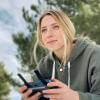






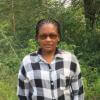











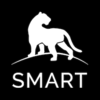










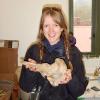




















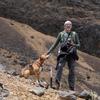

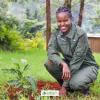





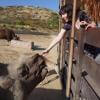







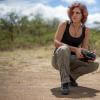

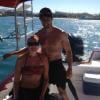

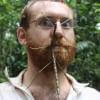




22 June 2021 1:06am
Here's one that I thought was interesting. It's unfortunately straight out of a research lab so it's not commercially available, but it would be interesting to see what the smallest or lightest device to fulfill a specific function can be made using commercially available technologies.
Snails carrying the world’s smallest computer help solve mass extinction survivor mystery